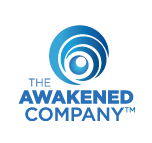Be Awakened.
Be Local.
Check out HOP.
We want to help you be remarkable and help you be awakened. I recently interviewed Kevin Davies, Founder of Hop Compost. Hop Compost is the organic way to grown your plants. From the food scraps of 40 select Calgary restaurants, they have crafted the first local fertilizer alternative to be certified organic and non-GMO. How awesome is this? And they are growing. We can do better together by solving challenges.
How have you interrupted the traditional business model or business as usual?
We’ve seen a big push for farm-to-table food sourcing. The next step is to return food scraps from table-to-farm, to unify our food system in one closed loop. With a closed loop, we achieve regenerative agriculture, so each generation of local food sustains the next, without waste.
Hop’s mission is to create a closed loop for every major city in North America, enabling food merchants to reach zero-waste, and enabling their local organic growers to multiply crop growth. This value base creates a unique business model, in that Hop has a triple profit stream. We are paid for our inputs with Hop’s food waste collection service, for our output with Hop’s organic craft compost, and for our byproduct with Hop’s carbon credits.
Our disruption to business-as-usual builds an unusually strong economic platform for scale, but harmonizes growth for unusually strong environmental benefit with scale. In the 19 months since closing our first investment round, Hop’s share price is up 140%, validated through four subsequent rounds. Over the same period, Hop has saved over 1,900,000 pounds of waste from landfill and saved over 4,900,000 pounds of greenhouse gas emissions.
How has your company improved its bottom line during this time, and if not, what are you noticing?
I think my team would laugh at me when I say that we run lean, in that “lean” is an understatement. Hop is agile and very DIY. We challenge every detail of how our industry has conventionally run, and in many cases, we’ve flipped the operating model on its head. Our specialty has become value-aligned innovations that improve quality or sustainability, while simultaneously cutting expenses or enhancing revenue.
Many companies are stuck sacrificing one for the other, where quality is a cost not an efficiency, and sustainability is an externality not an asset. For instance, the majority of compost facilities uses the windrow or aerated static pile method of production, where food essentially rots in piles outside at industrial scale. By virtue of their environmental nuisance (read: smell), these facilities have to locate in rural areas. Accordingly, they use large compaction vehicles for their collection route, to fit as much as they can into about 2-hour roundtrips.
Instead, Hop uses pioneering cleantech for its craft compost production. The cleantech runs odour-free, so we were able to create Canada’s first inner-city compost facility. The result, a rapid inner-city collection route, cut up to 92% of the emissions tied to conventional waste transport, which in turn amplifies Hop’s  carbon credit revenue. With minimal time spent on roundtrips to the facility, our labor time is instead spent on revenue-generating service, boosting revenue by about 25% over industry average, but on the same wage outflow. Our micro-trips also allow Hop to use small and efficient cube vans instead of large compaction vehicles, which cuts our lease expense by 84%, while further reducing emissions and increasing carbon credit revenue. With cube vans, Hops collects ingredients in labeled bins instead of a hulking mass, so we’ve cut ingredient contaminant levels from the industry standard 5% to less than 0.01%. With these labeled ingredient building blocks, Hop has broken ground on craft compost recipes, which is a significant reason why Hop’s organic compost has 7.6x more nutrients than the Canadian industry standard.
carbon credit revenue. With minimal time spent on roundtrips to the facility, our labor time is instead spent on revenue-generating service, boosting revenue by about 25% over industry average, but on the same wage outflow. Our micro-trips also allow Hop to use small and efficient cube vans instead of large compaction vehicles, which cuts our lease expense by 84%, while further reducing emissions and increasing carbon credit revenue. With cube vans, Hops collects ingredients in labeled bins instead of a hulking mass, so we’ve cut ingredient contaminant levels from the industry standard 5% to less than 0.01%. With these labeled ingredient building blocks, Hop has broken ground on craft compost recipes, which is a significant reason why Hop’s organic compost has 7.6x more nutrients than the Canadian industry standard.
That’s just one example, and that mentality is applied to every aspect of Hop. Taken together, our quality, sustainability, and margins multiply each other, for unparalleled results.
Your employee retention. How is it and speak to your experience with keeping great people.
It starts with hiring. I think that conventional business had a model of hiring fast and firing slow. The backlash against this jumped to hiring slow and firing fast. While the prior simply lacked culture control and productivity, the latter emphasized productivity to the extent that it commoditized people with the corrosive culture of firing, which is ultimately counterproductive.
At Hop, our anthem is to hire slow and fire never, prioritizing value alignment to build a culture of self-propelled productivity. For the last year, we’ve hired exclusively through GoodWork, which is a job-posting site for those seeking meaningful work in environmental companies. After a very extensive hiring process, we’re sure our people aren’t just skilled – they really want to be here.
The key is to empower that mentality to take flight. Every team member is an owner in Hop through our stock option program, and we start every week with a Monday huddle that engages every team member in company decisions. Our truck driver knows exactly what’s going on in the investment round, and has equal platform to voice his vision for Hop’s growth.
From there, we don’t approach rewards as a company-wide policy. Unique personalities need to be reflected in equally unique motivation and rewards. We have team members who love learning, so we fund their education opportunities; others love personal advancement, and we set them up with industry-leading mentors.
All this and more has culminated in a consistent core team that forms an unbelievable backbone for Hop. We’ve still had two positions turn over. Most people think they’d love the creativity, opportunity, and engagement of a very rapid-growth startup. But some simply crave structure when presented with freedom, and learn that they thrive in conditions of predictability more than in the pressure of uncertainty. That’s perfectly okay. The important thing is that we’re always learning and evolving our process, and can highlight that in the hiring process to be preventative not reactive. Now that Hop is a year old, we have an increasingly firm grasp of its culture and can build its strength with more tailored decisions.
What practical practices would you suggest to other businesses in Calgary at this time?
Calgary has a relatively undiversified business environment, but for now, it has the benefit of wealth. When that wealth is concentrated in education, assets, and jobs for one industry, the investment eventually becomes incestuous and that has its ramifications. I would encourage a few eggs to land in new baskets. In any natural ecosystem, biodiversity is an indicator of health; I would say the same is true of diversity in a natural economy.
On the flip side of that coin, I would encourage more financial savvy in social or environmental causes. We can continue to approach sustainability in the way we always have, but that’s going to continue our results, which I would say are characterized by a general lack of accessible sustainable options for consumers, job seekers, and investors. There will always be a role for non-profits, but I think sustainability needs scalability. I’m inspired by the fact that Tesla is building a competitive model for electric vehicles, instead of defacing gas stations. I would challenge social entrepreneurs to consider what their cause looks like with 5% weekly growth, and if they can attract the investment to support that.
